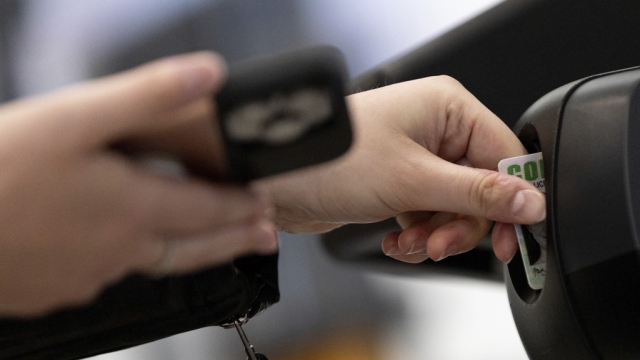The Transportation Security Administration is piloting a program to use facial recognition at airport screening checkpoints, an effort ruffling the feathers of privacy advocates ahead of the agency's planned expansion of the technology this year.
At 16 airports around the country, travelers insert their ID into a machine that scans its photo and matches that image with the person's real-time appearance, captured through a camera at the checkpoint. TSA officials call it a one-to-one match, as in the computer matches your photo to your face.
"So there is no back-end database of photos," said Jason Lim, Identity Management Capabilities Manager at the TSA. "There is no gallery of photos. You're actually matching to your own ID's photo and making sure that you are the same person you assert yourself to be."
In that sense, the TSA argues the new technology is both a security and privacy enhancement. But skeptics don't see it that way.
"There's no congressional mandate and initially there is no overarching law on the use of biometrics," said Jeramie Scott, Senior Counsel at the Electronic Privacy Information Center.
The TSA says once identities are verified, photos are deleted. Scott, though, isn't just taking the TSA's word for it.
"There needs to be an outside audit of its use to ensure its accuracy, to make sure it's not disproportionately impacting certain groups of people," he said. "Additionally, there should be some rules in place in terms of the deletion of that data immediately after the identification verification has been made."
The facial recognition process is optional, and travelers can opt out and use a lane without the new technology. Scott worries many travelers encountering the new process won't know it's an option.
"Most of the time you're just trying to get through security as fast as you can to make your flight," he said. "It's not the situation where you're usually making a well-informed decision."
The TSA says the technology is in use at 115 security lanes around the country. It plans to start using it in 200 lanes by the end of the year.
SEE MORE: Paying to skip the TSA line is tempting, but what's the catch?
Trending stories at Scrippsnews.com




